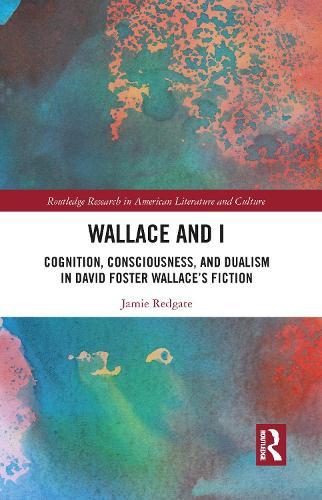Full Product Details
Author: Jamie Redgate
Publisher: Taylor & Francis Ltd
Imprint: Routledge
Weight: 0.272kg
ISBN: 9781032093901
ISBN 10: 1032093900
Pages: 188
Publication Date: 30 June 2021
Audience:
College/higher education
,
Tertiary & Higher Education
Format: Paperback
Publisher's Status: Active
Availability: In Print

This item will be ordered in for you from one of our suppliers. Upon receipt, we will promptly dispatch it out to you. For in store availability, please contact us.
Reviews
Jamie Redgate's Wallace and I is a ground breaking study of Wallace's vision of cognition. He demonstrates that Wallace's posthumanist leanings in the context of neuroscience rub up against a sustained adherence to Cartesian conceptions of the self. As such, Wallace's work proposes a model of cognition wherein the brain produces a quasi-Cartesian mind that is embodied and indelibly tied to and wholly dependent upon the individual's physical body. The book makes a genuinely innovative contribution to our understanding of Wallace's work, one that will be immensely clarifying to future Wallace scholars. Marshall Boswell, Rhodes College
Jamie Redgate's Wallace and I is a ground breaking study of Wallace's vision of cognition. He demonstrates that Wallace's posthumanist leanings in the context of neuroscience rub up against a sustained adherence to Cartesian conceptions of the self. As such, Wallace's work proposes a model of cognition wherein the brain produces a quasi-Cartesian mind that is embodied and indelibly tied to and wholly dependent upon the individual's physical body. The book makes a genuinely innovative contribution to our understanding of Wallace's work, one that will be immensely clarifying to future Wallace scholars. Marshall Boswell, Rhodes College
Jamie Redgate's Wallace and I is a ground breaking study of Wallace's vision of cognition. He demonstrates that Wallace's posthumanist leanings in the context of neuroscience rub up against a sustained adherence to Cartesian conceptions of the self. As such, Wallace's work proposes a model of cognition wherein the brain produces a quasi-Cartesian mind that is embodied and indelibly tied to and wholly dependent upon the individual's physical body. The book makes a genuinely innovative contribution to our understanding of Wallace's work, one that will be immensely clarifying to future Wallace scholars. Marshall Boswell, Rhodes College Jamie Redgate's Wallace and I is a ground breaking study of Wallace's vision of cognition. He demonstrates that Wallace's posthumanist leanings in the context of neuroscience rub up against a sustained adherence to Cartesian conceptions of the self. As such, Wallace's work proposes a model of cognition wherein the brain produces a quasi-Cartesian mind that is embodied and indelibly tied to and wholly dependent upon the individual's physical body. The book makes a genuinely innovative contribution to our understanding of Wallace's work, one that will be immensely clarifying to future Wallace scholars. --Marshall Boswell, Rhodes College This elegant volume, which weighs in at just 150 pages including notes (176 with bibliography and index), is a tour de force, cleanly argued, thoroughly grounded, and written with the kind of refreshing lucidity that many seasoned academics struggle to employ. --Dr Clare Hayes-Brady, The Journal of David Foster Wallace Studies 1:3
Author Information
Jamie Redgate received his PhD from the University of Glasgow. His writing has been published in Critique, Electric Literature, with the Scottish Book Trust, and elsewhere. He was shortlisted for the Imprint Writing Award in 2018.




